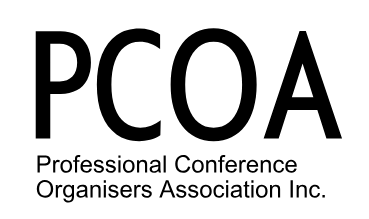 WHY THE KNOWLEDGE ECONOMY IS THE SILENT SUFFERER OF THE COVID-19 PANDEMIC
WHY THE KNOWLEDGE ECONOMY IS THE SILENT SUFFERER OF THE COVID-19 PANDEMIC
It’s been almost 12 months since COVID-19 hit Australia and abruptly shut down the business events industry. Events including conventions, symposiums, association meetings and trade exhibitions all disappeared overnight.
The financial impact of the pandemic on Australia’s economic health has been well and truly documented. Specifically looking at our industry, the Business Council of Australia (BECA) reported a loss of $A35 billion in direct expenditure to the Australian economy and over 230,000 jobs being impacted as a result of the pandemic.
However, this is just the tip of the iceberg. There are other impacts not so easily quantified, but with enormous ramifications that will continue to have a lasting effect long after the pandemic has retreated.
As I reflect one year on, one such ramification that hasn’t been widely acknowledged is the long term impact on Australia’s knowledge economy which is silently suffering.
Business events deliver much more than travel and hospitality spend, as significant as that is. They are a driving force for innovation, providing researchers and practitioners with a platform to discuss and disseminate new ideas. They are where the brightest minds come together to solve the world’s problems – from health and medical breakthroughs, technology and ethics, engineering and development, to environmental sustainability and more.
Meeting in person allows for networking opportunities, business exchanges, recruitment efforts and introductions. Some of the greatest business ideas, scientific developments and technical innovations have been sparked during an event workshop or in the corridors outside of formal sessions.
Connections are made and actions are taken, which otherwise may never have taken place. For example, The University of New South Wales (UNSW) was awarded a $A17.7 million grant from the National Health and Medical Research Council to support research into HIV AIDS as a direct result of the World Aids Conference held in Sydney. They also received an $A18 million grant from the Bill and Melinda Gates Foundation to support a research study into HIV drug therapy while being recognised as an international leader in HIV AIDS research.
Hosting virtual and hybrid events in the current climate has certainly been valuable for businesses and organisations to continue to communicate in a pandemic environment however, there are some things that we need to do together face-to-face that you can’t easily replicate online.
As the pandemic endures, it’s never been more important for private industry, government and the community to recognise the broader value of business events to our society, beyond the obvious monetary outcomes. It may be difficult to quantify the non-monetary benefits but it’s crucial that they are ultimately recognised and outcomes are captured.
Along with the reactivation of the visitor economy, the knowledge economy forms part of the advocacy platform for the business events industry. It is yet another reason why we need to bring the return of face-to-face events into the foreground and make this our primary focus in 2021.
We have reached a major milestone with the beginning of the vaccination roll out in Australia but realistically, the business events industry remains in survival and immediate recovery mode.
In order for business events to reach their full potential, we need to reach a unified approach to interstate border closures, agree on a national definition for hot spots and ultimately open our international borders so that international travel can resume.
Longer term, once we have achieved effective global vaccination, only then will people be able to move freely to attend international events with confidence, putting the industry in a position to fully recover and once again deliver intellectual, business and social legacies for Australia.
ICC Sydney CEO, Geoff Donaghy
